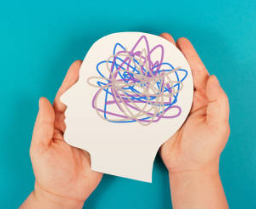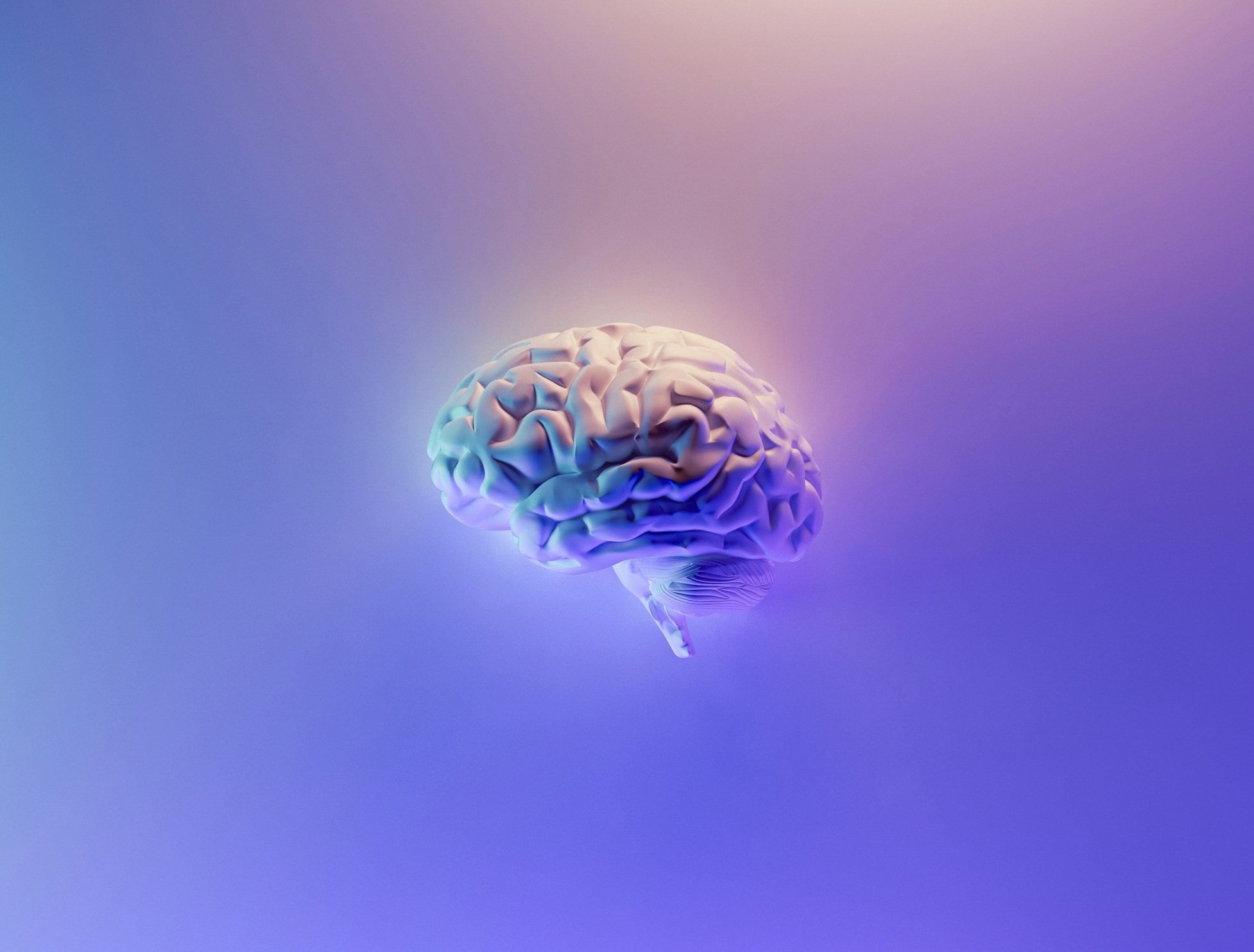Understanding ADHD
Your Comprehensive Guide to the ADHD Brain
What exactly is ADHD, and how does it affect adults? ADHD stands for Attention-Deficit/Hyperactivity Disorder, and it's a difference in how the brain works that makes it harder for adults (and kids!) to manage attention, control impulses, and stay organized.
Is ADHD a learning disability or a Neurodevelopmental Disorder?
This is a common question! ADHD is not considered a learning disability, although it can certainly make learning more challenging. Instead, ADHD is classified as a neurodevelopmental disorder. This means it's a condition that affects how the brain develops and functions. It's a difference in brain wiring, not a lack of intelligence or ability to learn.
While ADHD is not a mental health illness like depression or anxiety, people with ADHD often experience mental health challenges as a result of navigating a world not always built for their brain type. The frustration and stress of dealing with executive function difficulties can contribute to feelings of anxiety or depression.
What are common symptoms of ADHD in Adults?
ADHD symptoms can look different in adults than in children. While hyperactivity may decrease, challenges with inattention and executive function often persist and can impact daily life significantly. According to the DSM-5 (Diagnostic and Statistical Manual of Mental Disorders, 5th Edition), common signs of ADHD in adults can include:
Difficulty focusing or staying on task.
Problems with organization and planning.
Frequent procrastination.
Restlessness or feeling on edge.
Impulsivity (making hasty decisions or interrupting others).
Difficulty managing time effectively.
Forgetfulness.
Trouble completing tasks.
Emotional dysregulation (difficulty managing strong emotions).
It's important to note that everyone experiences some of these challenges occasionally. For an ADHD diagnosis, these symptoms must be persistent, significantly impact multiple areas of life (like work, relationships, and home), and have been present since childhood.
How does an ADHD brain differ from a Neurotypical brain?
Research suggests that the ADHD brain has differences in areas like the prefrontal cortex, which is vital for executive functions. There are also differences in how neurotransmitters, particularly dopamine and norepinephrine, function. These chemicals play a key role in regulating attention, motivation, and reward. In the ADHD brain, there may be lower levels or less efficient use of these neurotransmitters, impacting the ability to maintain focus and regulate behavior.
The ADHD vs. ADD distinction: what's the current terminology?
You might have heard the term "ADD" in the past. Historically, ADD (Attention Deficit Disorder) was used for individuals who primarily had inattattion symptoms, while ADHD (Attention Deficit Hyperactivity Disorder) was used for those with both inattention and hyperactivity.
However, the current terminology, according to the DSM-5, is simply ADHD. The different ways ADHD can show up are now referred to as "presentations":
Predominantly Inattentive Presentation: This is what was previously called ADD, characterized by difficulty focusing, organizing, and remembering details.
Predominantly Hyperactive/Impulsive Presentation: Characterized by restlessness, difficulty sitting still, impulsivity, and interrupting others.
Combined Presentation: Individuals with this presentation show significant symptoms of both inattention and hyperactivity/impulsivity.
So, while some people still use the term ADD, the official and most accurate term is ADHD, with different presentations describing the specific symptom profile.
What are common myths about ADHD?
There are many misunderstand misunderstandings about ADHD. Let's clear up some of the biggest ones:
Myth 1: ADHD is just for kids. This is false! While it's often diagnosed in childhood, ADHD is a lifelong condition for most people. Many adults are only now recognizing their symptoms and seeking diagnosis.
Myth 2: People with ADHD just need to "try harder." If only it were that simple! ADHD is about real brain differences, not a lack of effort or willpower. Telling someone with ADHD to just "try harder" is like telling someone with poor eyesight to just "see better" without glasses.
Myth 3: ADHD means you can't focus at all. Actually, people with ADHD can often hyperfocus intensely on things they find super interesting, sometimes to the exclusion of everything else. The challenge is regulating where and when that focus goes, and shifting attention to less engaging tasks.
Myth 4: ADHD isn't real. It is! Reputable organizations like the CDC (Centers for Control and Prevention) and major medical groups recognize ADHD as a legitimate and well-researched condition.
What steps to get help and receive an ADHD Diagnosis as an Adult?
Getting an ADHD diagnosis as an adult can be a life-changing step, providing clarity and opening doors to effective strategies and support. The process typically involves several steps:
Notice Patterns: Start by observing and documenting the challenges you face in your daily life. Are there recurring difficulties with focus, organization, time management, or impulsivity?
Seek Trusted Advice: Talk to a friend, family member, or mentor you trust about your observations and concerns. Sometimes an outside perspective can be helpful.
Consider a Screening Test: While not a substitute for a formal diagnosis, online screening tests or questionnaires can help you reflect on your symptoms and see if they align with ADHD characteristics. (For informational purposes only).
Consult a Professional: The most crucial step is to seek evaluation from a qualified mental health professional who specializes in ADHD. This could be a psychiatrist, psychologist, or clinical social worker.
Comprehensive Assessment: The professional will conduct a thorough assessment.
Explore Support: Once diagnosed, you can explore various forms of support, including ADHD coaching, therapy, medication, and lifestyle adjustments.
What to Expect from ADHD Coaching Sessions
Every coaching journey is unique, let’s build yours together!
Complementary Initial Session: We discuss your challenges, goals, and whether coaching is the right fit.
Custom Strategy Development: We create ADHD-friendly strategies tailored to your life.
Ongoing Coaching & Accountability: Regular sessions to refine strategies, track progress, and provide support & motivation.
Sustainable Growth: You build habits and systems that work long-term.
About Charlotte Shimko
Charlotte Shimko (MBA, PMP) is an executive and ADHD coach who supports professionals, especially neurodivergent individuals and women navigating career transitions and wellness, with personalized strategies rooted in real-world experience. Drawing from her own journey with ADHD, cPTSD and leadership roles in consulting and entrepreneurship, she focuses on building executive functioning skills such as time management, planning, and emotional regulation while honoring each client’s strengths. Certified in project management and lifestyle and wellness coaching through Harvard Medical School, Charlotte meets you where you are and helps you build sustainable systems for clarity, confidence and career success.
FAQs
Have more questions? Let’s chat!
-
Coaching is action-focused—we work on strategies for productivity, confidence, and executive function. Therapy often deals with emotional healing and past experiences.
-
If you struggle with organization, focus, or follow-through, coaching can provide personalized strategies and accountability to help you succeed.
-
Many clients haven’t been formally diagnosed, but if you relate to ADHD challenges, coaching can still help!
-
Yes, ADHD symptoms can change throughout a person's life. While core challenges with executive function and attention remain, the way they manifest can evolve. For example, hyperactivity might decrease in adulthood, while inattention and organizational difficulties become more prominent.
-
No – it can involve inattention, hyperactivity, or both.
-
ADHD begins in childhood, but many people aren’t diagnosed until they’re adults .
-
Many people aren’t diagnosed with ADHD until they're adults, and here's why:
Childhood structure hides symptoms
In school, routines and constant supervision help mask ADHD symptoms. When adults leave that environment—like going to college or starting work—those routines disappear, and difficulties in focus, planning, and organization become more obvious henryford.comself.com+9my.vanderbilthealth.com+9en.wikipedia.org+9.Symptoms change over time
As children grow up, hyperactivity often decreases. Adults may struggle more with inattention, forgetfulness, or restlessness—difficulties that are less obvious and can be mistaken for being disorganized or unmotivated self.com.People develop coping strategies
Highly intelligent or high-functioning adults often learn ways to compensate, like using planners or relying on structure in family life. These adaptive strategies can mask ADHD until life becomes more complex my.vanderbilthealth.com+9thetimes.co.uk+9dailytelegraph.com.au+9add.org+2en.wikipedia.org+2my.vanderbilthealth.com+2.Other diagnoses get prioritized
ADHD often co-occurs with anxiety, depression, or learning disabilities. Adults typically receive treatment for those conditions and ADHD symptoms go unnoticed wexnermedical.osu.edu+9pmc.ncbi.nlm.nih.gov+9thetimes.co.uk+9.Gender and cultural bias in diagnosis
Girls and women often show less disruptive behavior—more inattentive and internalized patterns—that can be overlooked in childhood. Adults might recognize these symptoms later in life verywellmind.com+15en.wikipedia.org+15apa.org+15en.wikipedia.org. Additionally, cultural or socioeconomic factors can delay access to diagnosis and care.
Subscribe
Subscribe









The coaching industry is evolving, with niche specializations becoming more in demand than ever. From executive leadership and ADHD coaching to AI-powered career coaching, discover the 10 biggest coaching trends for 2025—and how they’re transforming the future of personal and professional development.